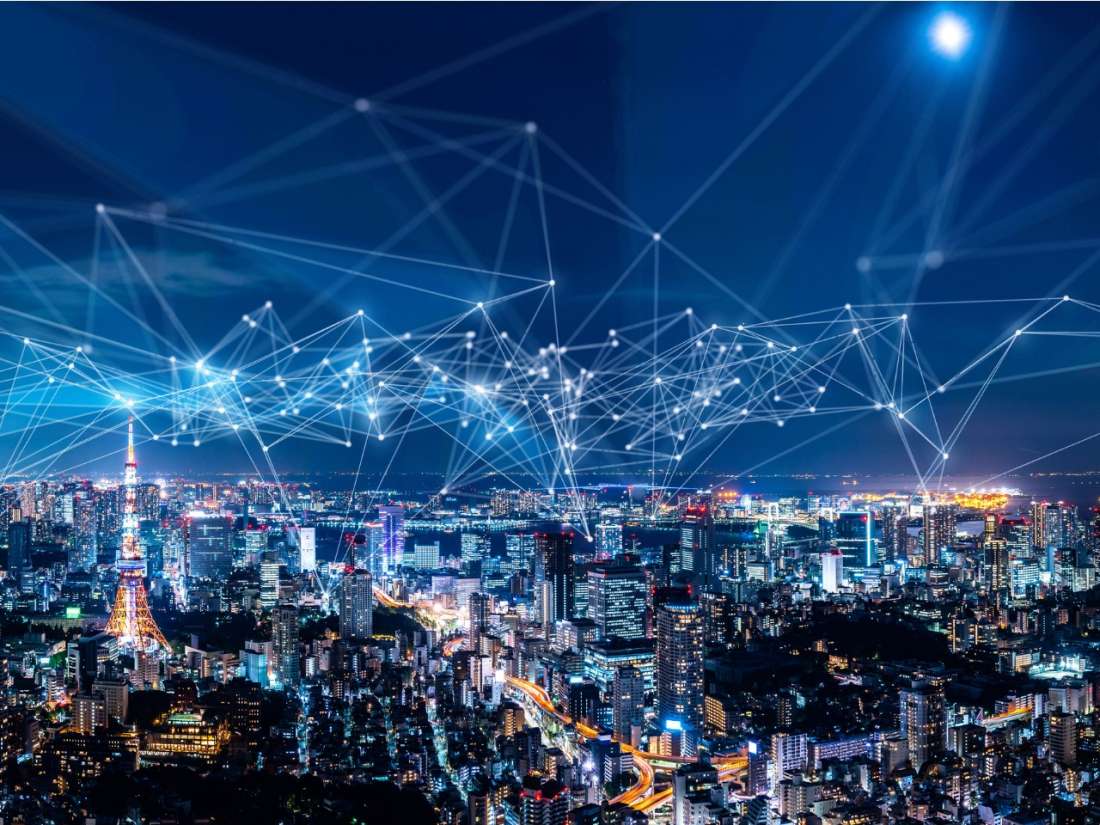Different projects are taking shape around the world to define the characteristics of the city of the future. In these first decades of the new millenium, the increase in the world’s population and concerns about climate change are driving a new way of urban planning: charging stations for autonomous electric vehicles, artificial trees that absorb pollution, windows that repair themselves or autonomous delivery drones are just a few of the ideas that are being tested in the first trials for these futuristic metropolises.
Woven City in Japan
Unveiled at the last edition of the CES 2020, Woven City is the Smart city that Toyota is building in its home country. It is due to open in 2021, as announced by the company’s CEO, Akio Toyoda. The 70-hectare complex at the base of Mount Fuji will serve as a “living laboratory” of urban space and expects to have not just autonomous cars and other automotive advances, but also sensor technology for smarthomes. Woven Cuty, which will initially have 2,000 inhabitants, will even include robots to monitor the health of its inhabitants and take care of basic tasks. It is being designed by Danish architect Bjarke Ingels, who also worked on the 2 World Trade Center and the Lego House in Denmark.
Neom in Saudi Arabia
The Wall Street Journal describes this proyect as an enhanced combination of Silicon Valley, Hollywood and the Frenc Riviera. It will blend hi-tech and luxury services such as robot butlers, beaches that glow in the dark, artificial rain, a giant artificial moon and 100% renewable energy. This city, which will be called Neom and counts with a 500,000 billion dollar Budget, is being developed in Saudi Arabia and is the greates urban Project of Crown Prince Mohammed bin Salman. It will cover more tan 25,000 square kilometers (9,652 square miles), aorund 25 times the área of Los Angeles, and is due to open in 2025.
Sidewalk Labs in Canada
Sidewalk Labs is the urban innovation branch of Alphabet, Google’s parent Company. It is currently transforming a Toronto waterfront neighbourhood as part of an experiment in intelligent urban development. The 50,000 sq. m. district on the Canadian city’s waterfront will feature all-wood buildings and modular flooring for easy redevelopment. Sidewalk Labs also Works on achieving more sustainable energy use, accesible carpooling and heated sidewalks, among others. Although Google is behind the Project, the Company has commited not to collect or sell personal information from users or display personalized advertising.
Forest City in Malaysia
Forest City is a $100 billion Project to be built on four man-made islands in the Strait of Johor, the thin stripe of water between Malaysia and Singapore, with a total área of 14 square kilometers of land reclaimed from the sea. It will have buildings covered with vegetation and roads without cars, and its creators also plan to créate gardens with automatic irrigation and self-repairing windows.
Belmont in the United States
Belmont will be a Smart city built in the Phoenix, Arizona metropolitan área. Bill Gates is an investor for about 80 million dollars. This city will house a population of about 193,000 residents. The site currently covers 100 square kilometers (38 square miles), and its creators hope that in time it will become a living community with businesses, schools and 80,000 homes built around emerging technologies.
